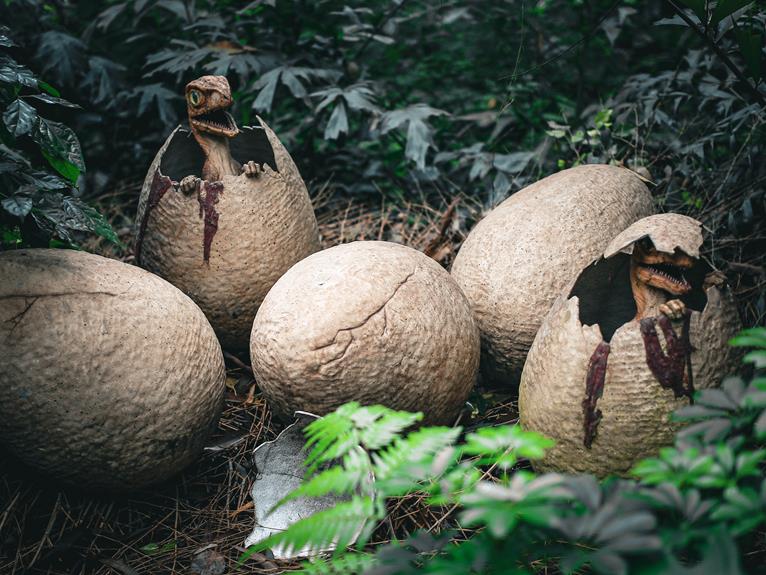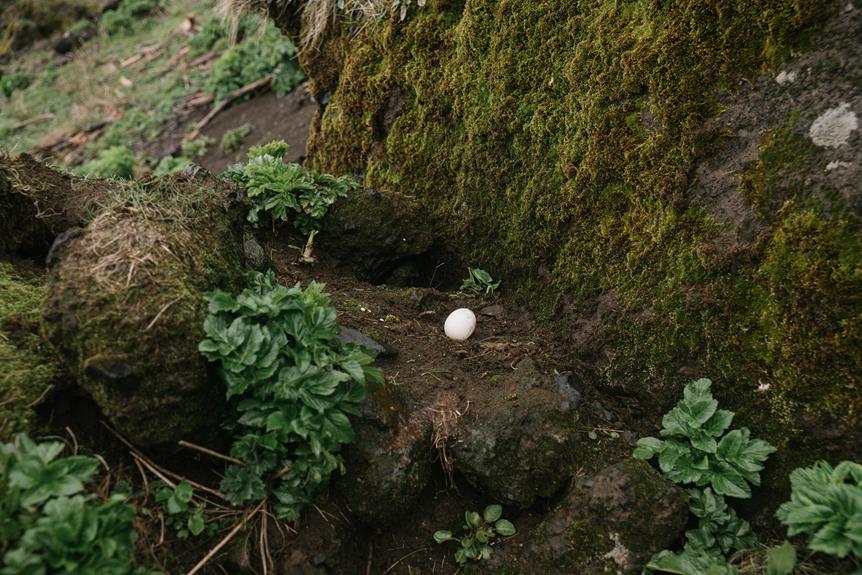You may be wondering if crested geckos can eat mealworms. After all, they are not a natural part of their diet in the wild. However, with careful consideration and preparation, mealworms can be an excellent feeding option for your crested gecko. In this article, we’ll go over the nutritional value of mealworms for crested geckos, the potential risks involved, and tips on how to prepare and serve them to your pet. We’ll also explore the potential benefits of adding these worms into your reptile’s diet. So let’s get started – you’ll soon learn why it may be worth considering adding mealworms to your crested gecko’s menu!
Key Takeaways
- Mealworms are high in protein and fat, providing essential nutrients for crested geckos.
- Feeding mealworms to crested geckos adds variety to their diet and allows for better portion control.
- Mealworms are an economical and readily available feeder insect for crested geckos.
- Precautions should be taken to ensure the mealworms are free from bacteria, parasites, and spoilage before feeding them to crested geckos.
Nutritional Value of Mealworms for Crested Geckos
Mealworms are an excellent source of nutrition for crested geckos, providing essential vitamins and minerals that can’t be found in other food sources. Mealworms are particularly high in protein and fat content, making them a great alternative to crickets or other insect options. As far as vitamin content goes, mealworms contain significant amounts of calcium and phosphorus – both necessary for healthy bone growth in cresties – as well as Vitamin A which is integral to the overall health of the animal. Mealworms also contain small amounts of Vitamin B12 which helps with digestion and metabolism.
Feeding mealworms to your crested gecko is a great way to ensure they get all the vital nutrients they need without having to resort to more expensive alternatives. Providing your pet with a varied diet is important for their health so adding mealworms into their regular feeding routine can help provide balance and variety while meeting nutritional needs. This ensures that any deficiencies in diet can be easily remedied, helping keep your crested gecko happy and healthy.
Given the wide range of benefits offered by mealworms, it’s easy to see why they’re such a popular choice when it comes to feeding crested geckos. In addition, since mealworms are readily available at most pet stores or online retailers, there’s no need to worry about finding alternatives that may not be as nutritionally beneficial or cost-effective. With this knowledge in hand, you can feel confident knowing that you are giving your crestie the best nutrition possible!
Benefits of Feeding Mealworms to Crested Geckos
Feeding mealworms to your crested gecko can provide them with great benefits! Mealworms are a popular feeder insect and they offer many advantages. Adding variety is one of the greatest benefits of feeding mealworms to your crested gecko. Not only do they add variety, but also give you more control over portion size which helps ensure your pet gets a balanced diet.
| Advantages | Disadvantages |
|---|---|
| Variety | Expense |
| Portion Control | Duration of Storage |
| Balanced Diet | Potential for Contamination |
Mealworms are relatively inexpensive compared to other feeder insects like crickets and roaches, making them a great choice for providing an economical source of nutrition for your pet gecko. They can be stored in an airtight container at room temperature for up to several months, allowing you to stock up on their food supply without having to worry about spoilage or waste. Although there is potential for contamination when storing live mealworms, it’s important that you practice good hygeine by keeping their enclosure clean and separating them from other types of insects.
Overall, adding mealworms to the diet of your crested gecko provides added variety, better portion control, and a balanced diet that supports their health and wellbeing. With proper care and preventative measures taken these risks can be minimized while still enjoying all the benefits mealworms have to offer!
Potential Risks of Feeding Mealworms to Crested Geckos
When providing your pet with mealworms, it is important to be aware of the potential risks associated with their consumption. Mealworms may carry bacteria or parasites that could cause illness in both you and your crested gecko. Additionally, improper storing of mealworms can lead to mold growth and contamination of the food supply. Furthermore, if not cleaned properly prior to feeding, they may contain dirt and debris that could potentially harm your pet. Lastly, there is also a risk of an allergic reaction from eating mealworms due to proteins present in their bodies.
For these reasons, it is important to take extra steps when preparing and storing mealworms for a crested gecko’s diet:
- Store them in a cool location away from direct sunlight
- Clean them thoroughly before serving
- Avoid overfeeding as this can result in digestive issues
- Discard any expired worms immediately
- Regularly check for signs of mold or spoilage
These precautions will help ensure that you are providing a safe source of nutrition for your pet while minimizing the risk of health problems related to consuming mealworms. Taking care when preparing and feeding mealworms will help create an enjoyable dining experience for both you and your crested gecko!
How to Prepare Mealworms for Crested Geckos
Providing your pet with a nutritious snack doesn’t have to be difficult – let’s take a look at how to prepare mealworms for your crested gecko! Mealworms are an excellent source of protein for your gecko. The key to feeding them properly is to choose an appropriate feeding technique and portion size. To begin, you’ll need to thaw the mealworms before offering them to your pet. This can be done by placing frozen worms in a bowl and allowing them to thaw naturally or by placing them in warm water for several minutes. Once they’ve been thawed, it’s important that you rinse the worms off with dechlorinated water and remove any dirt or debris from their skin. After rinsing the worms, you should also cut off their heads if they haven’t already been removed prior to purchase. Finally, you’ll want to measure out an appropriate portion size as too many mealworms may lead to overfeeding and digestive upset in your gecko. Taking the time to prepare mealworms will ensure that your pet is receiving all of the essential nutrients needed for proper growth and health while avoiding potential risks associated with overfeeding. When done correctly, feeding mealworms can provide a delicious snack full of valuable nutrition for your crested gecko! With these simple steps in mind, let’s look at some tips for offering this tasty treat safely and effectively.
Tips for Feeding Mealworms to Crested Geckos
You can give your pet a nutritious treat by offering them mealworms – just remember to follow a few simple tips for feeding them safely and effectively.
Feeding Frequency:
- Begin with 1-2 times per week, then increase as needed depending on the gecko’s size and age.
- Keep an eye on your gecko’s weight; if they’re gaining too much, cut back on the number of feedings per week.
- Offer small snacks throughout the day instead of large meals if you notice your gecko is overweight.
Meal Size:
- Feed mealworms in moderation based on your gecko’s size; about 5-8 worms for smaller crested geckos, and 8+ worms for larger ones.
- Avoid overfeeding as this can lead to obesity or other health issues like fatty liver disease.
Safety Tips:
- Make sure that all food items are free from bacteria or parasites before feeding them to your pet.
- Monitor mealworm activity after feeding; any uneaten mealworms should be removed from the tank so they don’t stress out or injure the crested gecko.
These simple guidelines will ensure that your crested gecko gets enough nutrition while avoiding potential health risks associated with overfeeding – allowing you to enjoy watching them grow healthy and strong!
Frequently Asked Questions
How many mealworms should I feed my crested gecko?
You may feed your crested gecko mealworms, however, alternative diets should be considered for food safety. Be sure to research the size and quantity of worms that fit your gecko’s individual needs. Serving others is a key factor in providing an optimal diet for your pet.
Is it necessary to feed my crested gecko mealworms?
Feeding your crested gecko mealworms is not necessary, however they are an excellent source of protein. Be sure to freeze them first and avoid overfeeding, as too many mealworms can make your gecko sick.
Are mealworms a natural food source for crested geckos?
Imagining a crested gecko’s diet, you can see that mealworms are not a natural food source. They don’t meet the feeding habits or nutritional requirements for this species. However, they can be an occasional treat in moderation to supplement an otherwise balanced diet.
Can I feed my crested gecko live mealworms?
Yes, you can feed your crested gecko live mealworms. However, consider safety concerns and be sure to use proper feeding techniques to reduce the risk of injury.
Is there a specific type of mealworm I should be feeding my crested gecko?
Surprisingly, the type of mealworm you feed your crested gecko matters! After the germination process, they should be high in protein and low in fat to meet their dietary requirements. So take care when choosing the right kind for them; it’s worth investing time into selecting a quality mealworm for your pet.
Conclusion
You’ve learned that crested geckos can safely eat mealworms, and you now know the benefits of doing so. Mealworms are great sources of protein, vitamins, minerals, and other beneficial nutrients. While there are some potential risks to consider when feeding mealworms to your crested gecko, if you prepare them properly and follow a few key tips for feeding them correctly, they can be a healthy addition to your pet’s diet. Now it’s time for you to decide whether or not mealworms should be part of your crested gecko’s nutritional plan!

